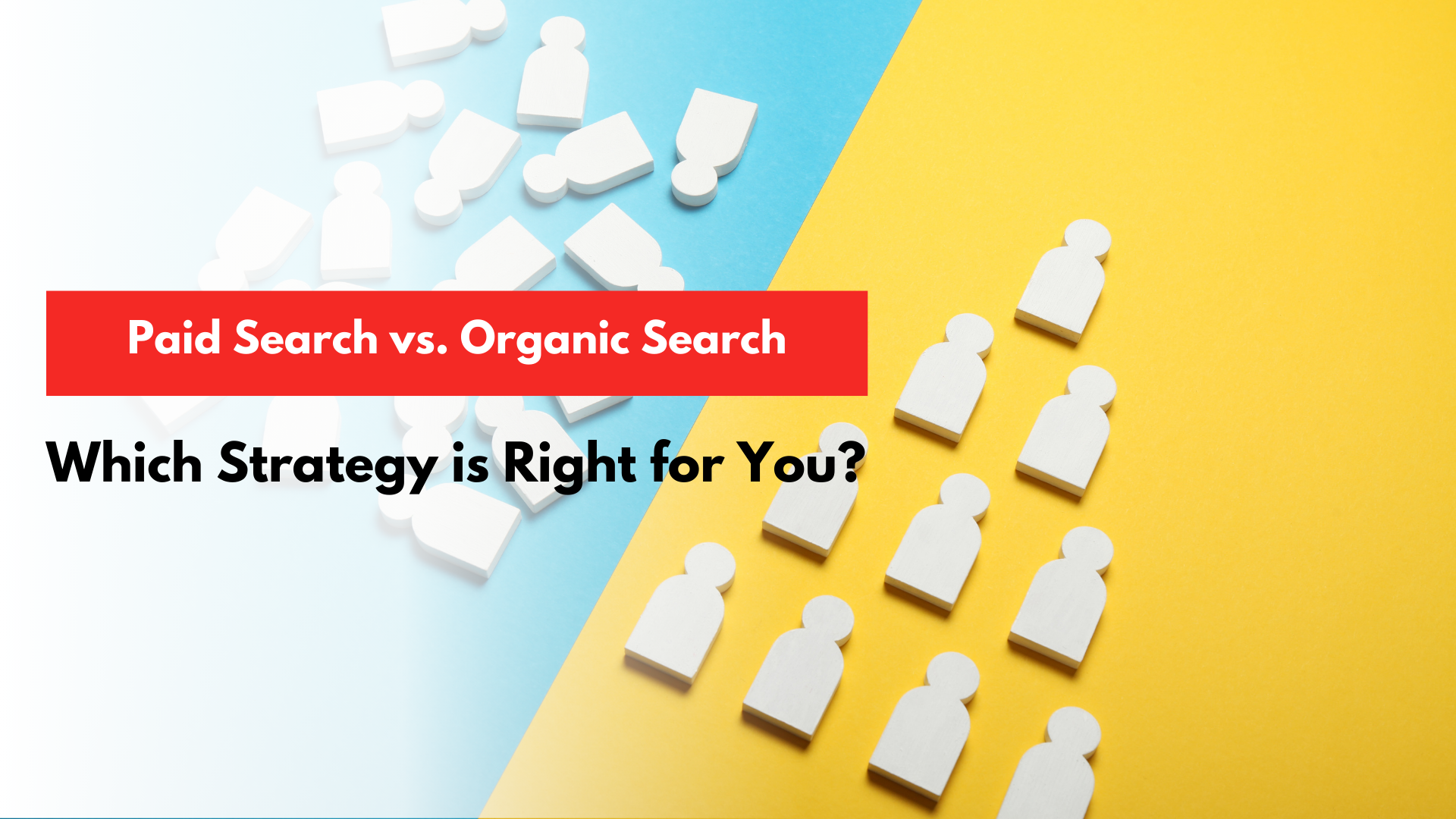In digital marketing, two dominant strategies stand out: paid search and organic search. Each approach has its strengths and weaknesses, and understanding these can help you make informed decisions for your business. In this blog, we’ll explore the key differences between paid search and organic search, their benefits, and how to choose the right strategy for your unique needs in digital marketing.
Contents
Understanding Paid Search
Paid search involves paying for ads that appear on search engine results pages (SERPs). This strategy is often employed through platforms like Google Ads, where businesses bid on keywords to have their ads displayed when users search for those terms. The most significant advantage of paid search is its ability to deliver immediate results. When you launch a paid search campaign, your ads can start appearing within minutes, attracting potential customers to your site.
Another benefit of paid search is its targeting capabilities. You can refine your audience based on demographics, location, and user behavior, ensuring that your paid search ads reach the right people. Moreover, with paid search, you gain access to valuable data analytics. This data can help you optimize your paid search campaigns for better performance over time.
However, paid search has its drawbacks. The most significant is the cost. Depending on the competitiveness of your chosen keywords, costs can add up quickly. Additionally, the benefits of paid search cease once you stop funding your campaigns. Without ongoing investment, your visibility drops significantly.
The Power of Organic Search
Organic search, on the other hand, refers to the non-paid listings that appear on SERPs. Achieving high organic search rankings typically involves search engine optimization (SEO) strategies. Unlike paid search, the results of organic search can take time to materialize. Building authority and trust with search engines requires consistent effort and high-quality content.
One of the main advantages of organic search is its long-term benefits. Once you’ve achieved a top-ranking position for relevant keywords, you can enjoy sustained traffic without the continuous financial investment required for paid search. Additionally, users often trust organic search results more than paid search ads, making it easier to build credibility with your audience.
However, the path to achieving high organic search rankings can be challenging. It requires a deep understanding of SEO techniques, regular content updates, and ongoing analysis of your website’s performance. Unlike paid search, the results may not be immediate, which can be frustrating for businesses looking for quick wins.
Comparing Paid and Organic Search
When deciding between paid search and organic search, consider the following factors:
- Budget: Paid search requires ongoing investment, whereas organic search demands time and effort. Evaluate your financial resources and determine which option aligns with your budget.
- Timeframe: If you need immediate visibility, paid search is the way to go. Conversely, if you can afford to wait for long-term results, organic search can provide sustainable traffic.
- Goals: Define your marketing goals. Are you looking for quick leads, or are you aiming to build brand authority over time? Your objectives will influence your choice between paid search and organic search.
- Industry: Some industries may benefit more from one strategy than the other. Research your market to understand where your audience is most engaged.
- Resources: Consider your team’s capabilities. Do you have the expertise to implement and maintain an effective SEO strategy for organic search, or would you prefer the simplicity of managing paid search campaigns?
Finding the Right Balance Between Paid and Organic Search
In reality, a blended approach that incorporates both paid search and organic search strategies can be the most effective. Using paid search to boost visibility while building organic search traffic can create a robust marketing strategy. This hybrid method allows you to capitalize on the strengths of each approach, maximizing your overall impact.
For instance, you might use paid search to promote new products or seasonal offers while simultaneously working on your organic search efforts to build your brand’s authority over time. This strategy can help you maintain visibility during crucial periods while laying the groundwork for long-term growth.
Conclusion
Both paid search and organic search have their merits, and the right choice depends on your business goals, resources, and timeline. Understanding the differences between these strategies is essential for crafting a successful digital marketing plan. Remember that a combination of both can often yield the best results, allowing you to benefit from immediate visibility while building a sustainable presence in the long run.
Why V the Digital
At VTheDigital, we specialize in helping businesses navigate the complexities of digital marketing. Whether you’re interested in paid search, organic search, or a combination of both, our team is here to guide you every step of the way. Reach out to us today to explore how we can enhance your online presence and drive growth for your business.





